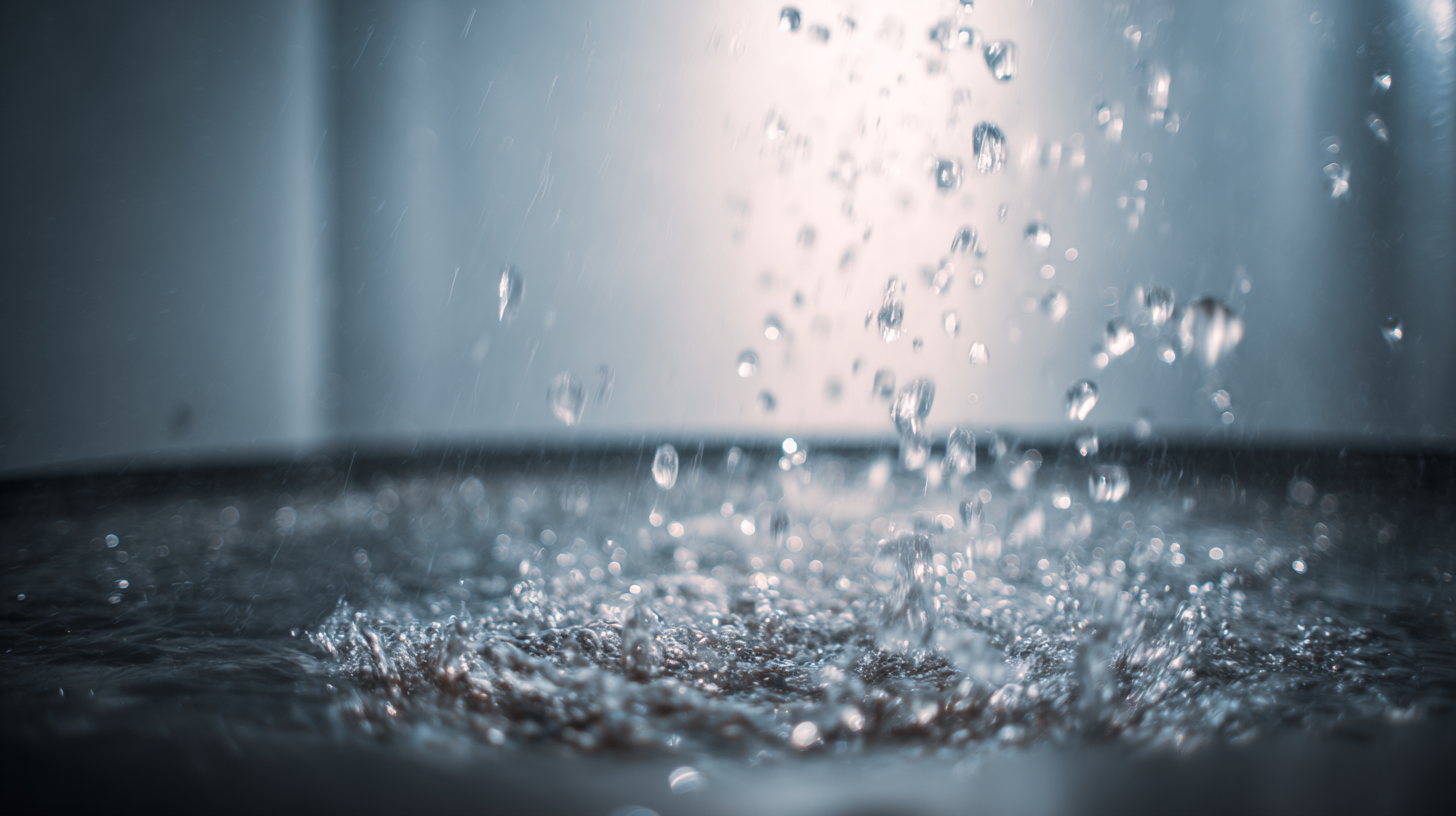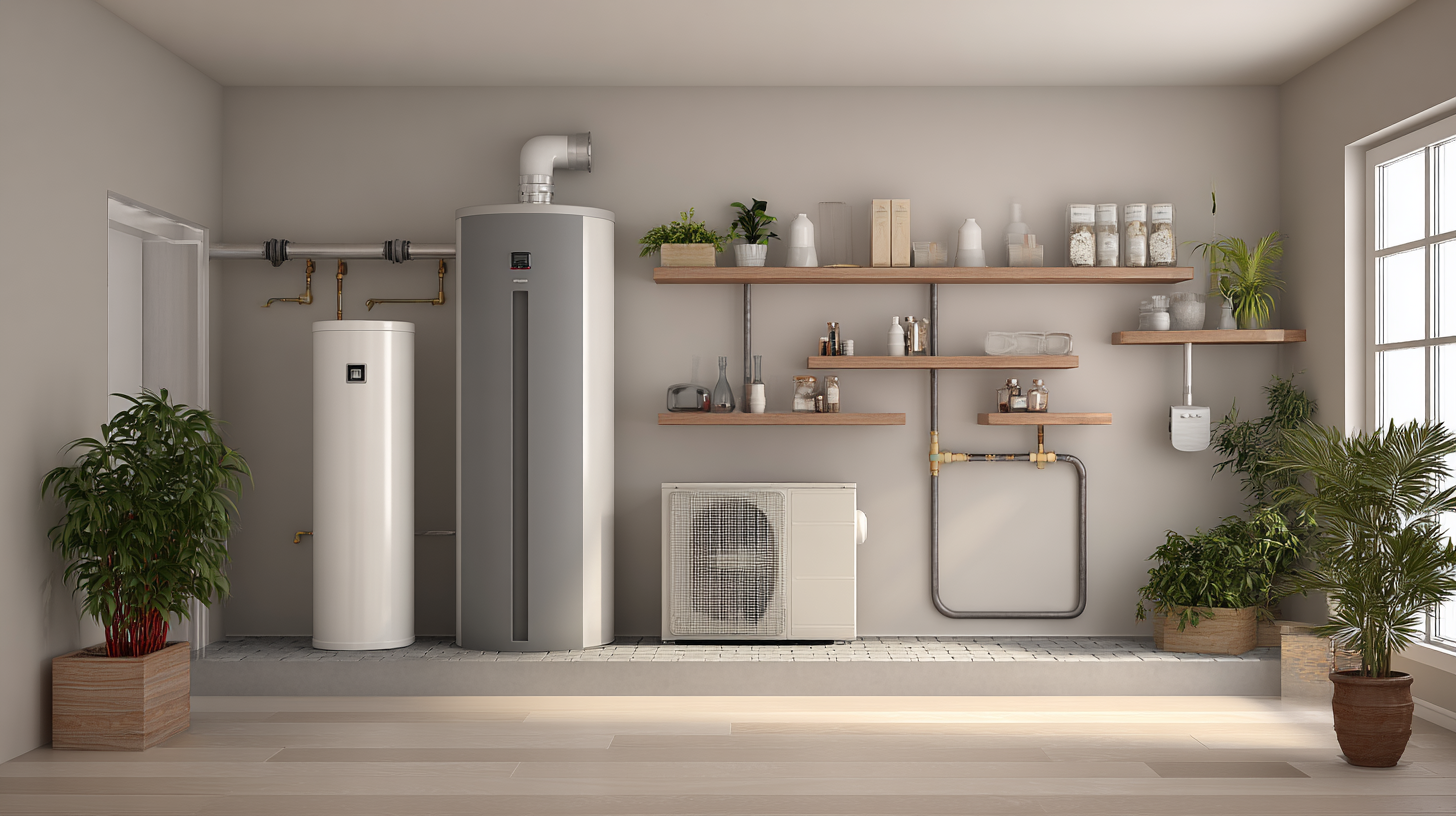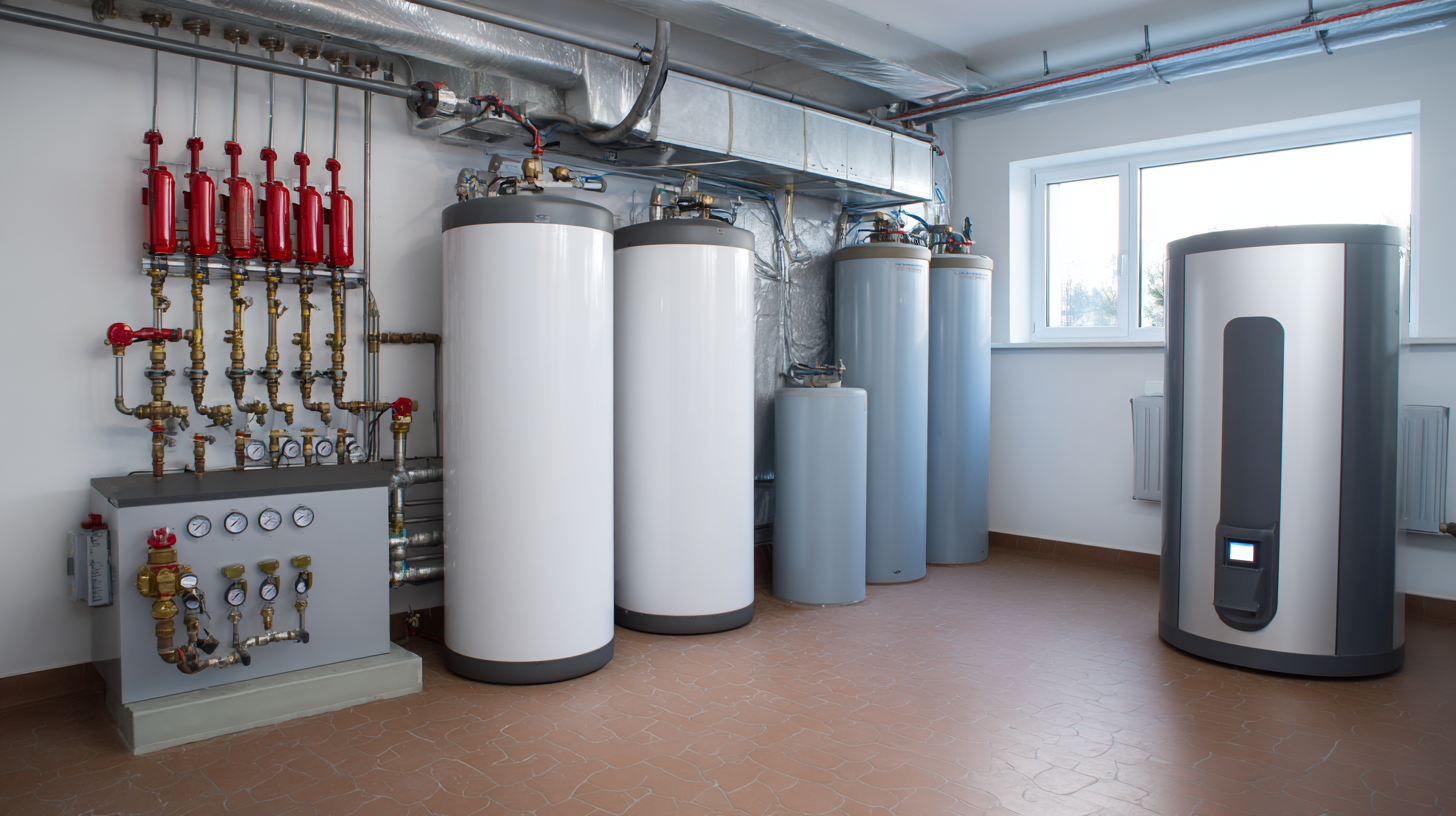Leave Your Message
When it comes to optimizing home heating solutions, selecting the right water heatpump is essential for achieving energy efficiency and comfort. According to the U.S. Department of Energy, heat pumps can be up to three times more efficient than traditional heating systems, significantly reducing energy consumption and utility costs. In fact, a study by the International Energy Agency indicates that the global market for heat pumps is expected to grow by over 50% by 2025, highlighting their increasing popularity and effectiveness. As homeowners seek sustainable heating options, understanding the key factors in selecting a water heatpump—such as size, efficiency ratings, and installation requirements—becomes crucial for maximizing both performance and savings. Therefore, this guide aims to provide insightful information to help you make an informed decision tailored to your specific heating needs.

When selecting the right water heat pump for your home, understanding your home’s heating requirements is of paramount importance. Start by assessing the size of your living space, as this directly impacts the heat pump's efficiency. Take into account the square footage of your home, the height of your ceilings, and the overall insulation quality. Homes with poor insulation may require a more powerful heat pump to adequately maintain comfortable temperatures, so addressing insulation issues first can lead to better performance from your system.
Next, consider your local climate and how it affects heating needs throughout the year. If you live in a region with harsh winters, you'll need a heat pump that can function effectively in low temperatures. Additionally, understanding your household’s hot water usage patterns is crucial. Different models of heat pumps offer varying capacities and efficiencies for heating water. By calculating daily hot water consumption based on your family size and lifestyle, you can select a unit that not only meets heating demands but also delivers reliable performance throughout the year. This comprehensive understanding will help ensure that you choose a water heat pump that aligns perfectly with your home heating needs.
| Heating Requirement (BTU) | Heat Pump Capacity (kW) | Suitable Home Size (sq ft) | Energy Efficiency Ratio (EER) | Estimated Annual Cost ($) |
|---|---|---|---|---|
| 30,000 | 8 | 1,200 - 1,600 | 15 | $1,200 |
| 45,000 | 12 | 1,600 - 2,200 | 16 | $1,800 |
| 60,000 | 15 | 2,200 - 3,000 | 17 | $2,200 |
| 75,000 | 18 | 3,000 - 4,000 | 18 | $3,000 |
| 90,000 | 22 | 4,000 - 5,000 | 20 | $3,500 |
When considering the various types of water heat pumps, it's essential to evaluate their efficiencies and suitability for your specific heating needs. Common options include air-source, ground-source (or geothermal), and water-source heat pumps. According to the U.S. Department of Energy, air-source heat pumps can provide heating efficiencies of 3 to 4 times greater than traditional electric resistance heating systems. On the other hand, ground-source heat pumps can achieve even higher efficiencies, with performance coefficients often exceeding 4.5, making them a cost-effective and sustainable option for long-term home heating.
**Tips:** When selecting a water heat pump, consider the local climate and the design of your home. Homes in milder climates may benefit more from air-source systems, while colder regions could see better performance with ground-source systems. It’s also advisable to consult with a professional installer who can assess your home’s energy efficiency and recommend the best fit based on actual performance data.
In addition to efficiency ratings, it’s also important to assess the installation and maintenance requirements of different systems. Choosing a model that easily integrates with your existing heating setup can reduce installation costs. According to the Environmental Protection Agency, proper installation can enhance efficiency by up to 30%, so consider investing in a qualified technician to ensure optimal performance.

When selecting a water heat pump for your home, assessing energy efficiency and operating costs is crucial. Energy efficiency ratings, often expressed in terms of Coefficient of Performance (COP) or Energy Efficiency Ratio (EER), serve as vital indicators of how effectively a heat pump converts energy input into heating output. A higher rating generally means lower energy consumption and reduced utility bills. Homeowners should compare models and seek those with better ratings to ensure long-term savings.

Operating costs also play a significant role in the selection process. While the initial investment in a high-efficiency water heat pump might be higher, it can lead to substantial savings over time due to lower energy expenses. Additionally, consider local energy rates and the heat pump’s waste heat recovery capabilities. In colder climates, models designed for efficiency in lower temperatures can be especially beneficial. Paying attention to both energy efficiency and operating costs ensures that you choose a system that is not only budget-friendly but also environmentally sustainable.
When selecting the right water heat pump for your home heating needs, careful consideration of installation and maintenance factors is crucial. First, understanding the installation requirements can save homeowners time and money. It's important to assess the available space and ensure compatibility with existing heating systems. Professional installation is often recommended, as it guarantees optimal performance and efficiency. Furthermore, potential buyers should inquire about the availability of local technicians for support, ensuring that maintenance can be easily handled.
Maintenance is another critical aspect that impacts the longevity and efficiency of a water heat pump. Regular maintenance routines, such as checking refrigerant levels and cleaning filters, are essential to prevent costly repairs and ensure the system runs efficiently. Homeowners should consider models known for their reliability and ease of maintenance. Understanding warranty options and manufacturer support can also provide peace of mind, ensuring that the investment remains protected over the years. With these factors in mind, homeowners can make informed choices that align with their heating needs and maintenance capabilities.
This chart compares the annual energy costs associated with various types of water heat pumps, helping homeowners make informed decisions based on efficiency and maintenance considerations.
When selecting the right water heat pump for your home heating needs, one crucial factor to consider is the reputation of the manufacturer and the product reviews available. A reliable manufacturer often signifies a commitment to quality and customer satisfaction, which is essential when investing in a long-term heating solution. Look for companies with a history of producing efficient and durable heat pumps, as well as those that offer extensive warranties and responsive customer service.
Additionally, reviewing product reviews provides valuable insights into real-life performance and user experiences. Pay attention to the feedback regarding efficiency, noise levels, maintenance requirements, and overall satisfaction. High ratings from customers can indicate a well-performing product, while consistent complaints might signal potential issues. By combining information from reputable reviews and assessing the manufacturer's standing in the industry, you can make an informed decision that best meets your home's heating requirements.
